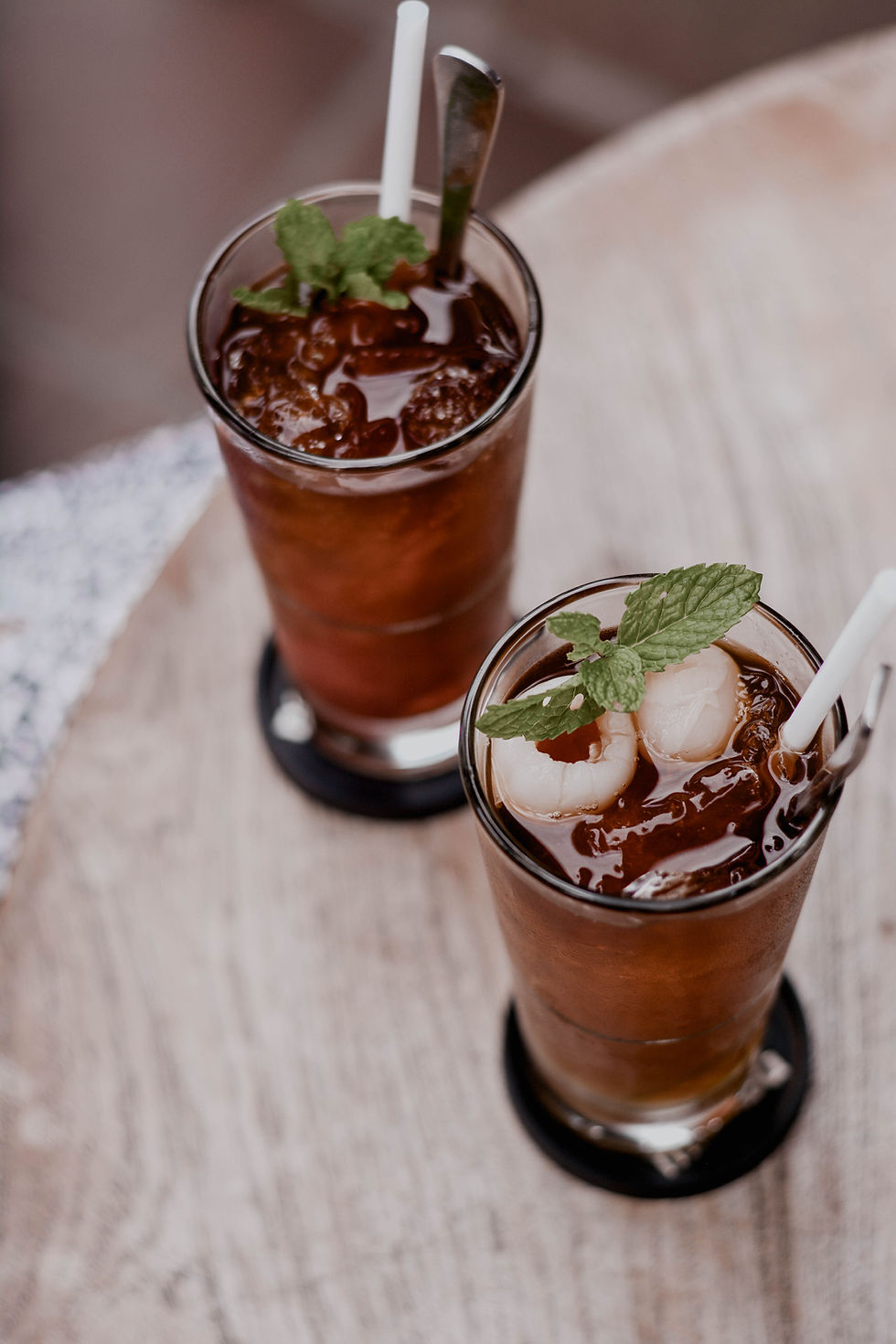The 7 Drinks You Think Are Good for You — But Aren’t
- ER Kent

- Aug 13, 2025
- 3 min read
How some of the most popular “healthy” beverages are loaded with sugar, additives, and empty calories

When you reach for a drink labeled natural, low-fat, or energizing, it’s easy to assume it’s doing your body good. But many of the beverages we associate with hydration, health, or energy are actually ultra-processed sugar bombs or chemical cocktails in disguise.
The marketing is slick, the labels sound convincing, and the images of fresh fruit or glowing athletes make it seem like you’re making a smart choice.
Unfortunately, the truth is that many of these so-called healthy drinks can cause blood sugar spikes, hormonal disruptions, and unnecessary calorie intake that works against your health goals.
Here are the seven drinks you think are good for you — but aren’t, and what you should sip instead.

Why “Healthy” Drinks Can Be Misleading
Unlike solid foods, drinks pass through your stomach quickly, often delivering sugar and calories without the satiety that comes from chewing. This makes it easy to consume excessive amounts without realizing it.
According to the Harvard T.H. Chan School of Public Health, liquid calories — especially from sweetened beverages — are strongly linked to weight gain, type 2 diabetes, and poor metabolic health.
The danger is even greater with ultra-processed drinks that contain refined sugars, artificial sweeteners, and chemical additives designed to make them taste irresistible.

1. Bottled Iced Tea
That refreshing bottled tea often contains as much sugar as soda, plus “natural flavors” and preservatives. Even the “light” versions are often sweetened with artificial sugars that can alter gut health.
Red Flag: More than 10 grams of sugar per serving and tea listed after sweetener on the ingredient list.

2. Flavored Coconut Water
Plain coconut water is hydrating and naturally low in sugar, but many flavored versions contain added cane sugar, fruit concentrates, or “natural” flavorings that push sugar levels to soda territory.
Red Flag: Anything other than “coconut water” in the first two ingredients.

3. Green Juice from a Bottle
While fresh-pressed vegetable juice can be nutrient-dense, most store-bought “green juices” rely heavily on apple or pineapple juice as the base — giving them a high sugar load with little fiber.
Red Flag: Fruit juice listed before actual green vegetables in the ingredients.

4. Sports Drinks
Marketed to athletes, sports drinks contain electrolytes — but also added sugars, artificial colors, and chemical preservatives you don’t need unless you’re doing high-intensity exercise for over an hour.
Red Flag: High fructose corn syrup, food dyes (like Blue 1), and over 10 grams of sugar per serving.

5. Flavored Almond or Oat Milk
While unsweetened plant milks can be a healthy choice, flavored versions often contain added sugar and stabilizers like carrageenan or gums, which can cause digestive upset in some people.
Red Flag: Sugar listed before the actual nut or grain in the ingredients list.

6. Energy Drinks
They promise alertness and stamina, but most contain high doses of caffeine, synthetic B vitamins, and loads of sugar. The stimulant-sugar combo can spike heart rate and cause energy crashes.
Red Flag: More than 150 mg caffeine per serving, plus high sugar content or artificial sweeteners.

7. Kombucha with Added Juice
Plain kombucha can be a gut-friendly probiotic drink, but when brands add juice or cane sugar post-fermentation, it becomes a sugary soda with probiotics.
Red Flag: More than 8 grams of sugar per serving — true kombucha will usually be less.

Better Sips for Real Hydration and Health
Instead of falling for health-washed drinks, go for:
Plain water — with lemon or cucumber for flavor
Unsweetened herbal tea
Sparkling water with fresh fruit slices
Fresh vegetable juice made at home with minimal fruit

The Takeaway
Not all “healthy” drinks are created equal. Many are liquid sugar traps that can derail your health goals while pretending to be nourishing. By checking labels and avoiding excessive sugar or chemical additives, you can hydrate and energize yourself without harming your metabolism.








Comments